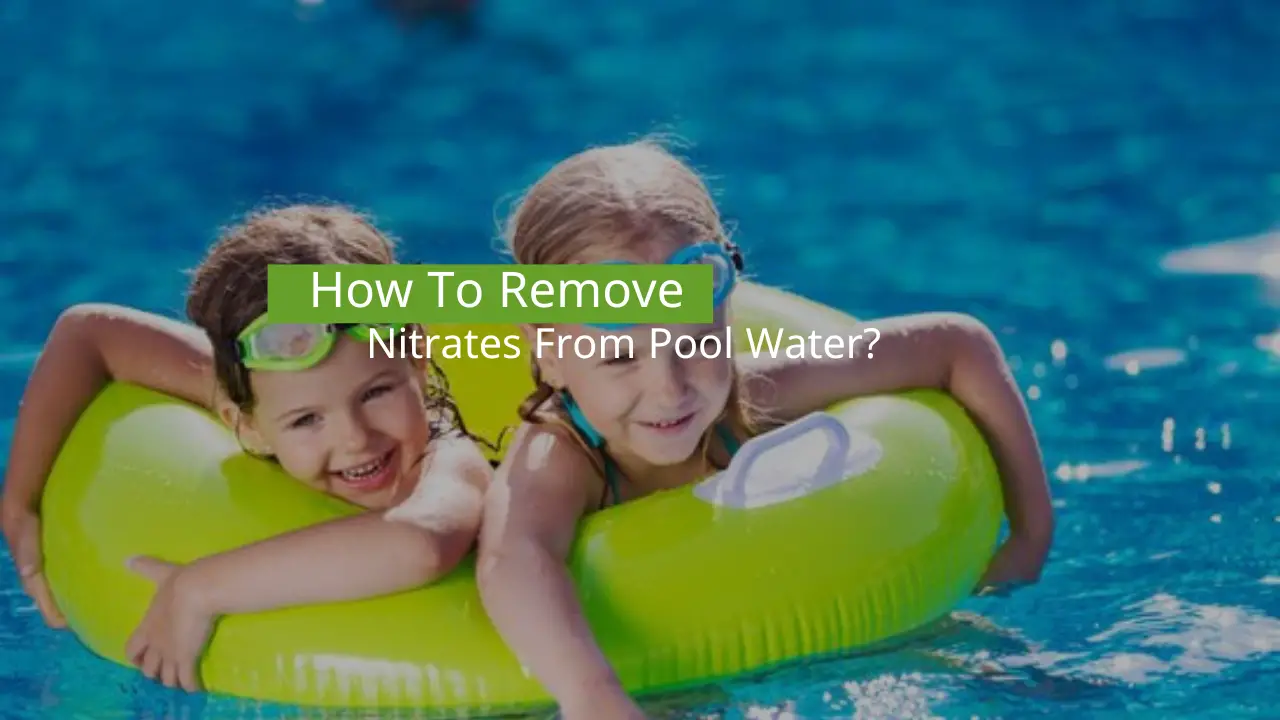
In this post, we will show you how to prevent nitrates from getting into your pool. We will explain what nitrates are, why they are bad for pools, and how to stop them from getting in your pool.
What Are Nitrates?
Nitrates (NO3) are polyatomic ions that are plant food. They are also found in the atmosphere. In the oceans, they can cause eutrophication.
Eutrophication is a process where a region of ocean waters becomes enriched with nutrients, usually nitrogen, and that can cause excessive growth of algae.
The nitrates that enter your pool can cause a problem. If your pool contains nitrates, the nitrates will attach themselves to the surface of the water. This causes algae to grow quickly. Algae will continue to grow until the nitrates are reduced by the microbes. You may read also Best Pool Alarms
What are Nitrites?
Nitrates are poisonous chemicals and they may cause problems if they enter your body. The good news is that nitrates are easy to remove from your pool water. The bad news is that you will need to buy a product that removes nitrates from the pool water.
If you have a swimming pool, you must make sure that the water that comes into it does not contain any nitrates. Nitrates are used in fertilizers and in many industrial processes. They are also used in the manufacture of dyes, explosives, pesticides, medicines, explosives, etc.
Is it possible that chlorine can get rid of nitrates?
If you have a pool, you may need to remove the nitrates from it to make sure that it is clean and safe. Chlorine doesn’t work very well to remove nitrates. This is because when you add chlorine, the chlorine converts the Nitrates into Nitrites. The Nitrites will then turn back into Nitrates. This is why you may have noticed that the pool seems cleaner after you add chlorine. The truth is, though, that you may have to do this more than once in order to get rid of all the Nitrates. If this happens, you will need to replace the pool filters to make sure that you don’t get too much chlorine in the pool.
How come nitrates get into my pool?
There are two ways to get nitrates in your pool. The first way is when you add chlorine. This kills the bacteria and algae that are normally present in the water but leaves the nitrates behind. This is the first source of nitrogen in your pool. The second way is when you get a leak and some water gets into the pool. When this happens, the nitrates from the leak will stay in the water, even if there is a filter in the system. It is very important that you have a filtration system in place in order to prevent the nitrates from getting into your pool.
Some of the other common sources are listed here, but they are not a complete list.
- Fertilizer
- The City Water
- Sweat of human
- Animals such as Dogs Ducks & Cats
Is there a way to prevent nitrates from getting into my pool?
I give you tips on how to prevent nitrates from getting into your pool, so you can enjoy swimming in a clean, safe and healthy environment.
1. Pool Cover
The best way to prevent nitrates from getting into your pool is to have a pool cover. We recommend that you buy one to protect your pool. A pool cover will be your first line of defense against potential pollutants. There are two ways to use a pool cover. First, you can place the cover on your pool and secure it to the sides.
It is important that the pool cover be secured to the pool to prevent the pool cover from blowing away. When the pool cover is placed on the pool, you should make sure that it fits correctly. If it doesn’t, the pool cover will blow away very easily. Also, make sure that the pool cover is secured tightly. You may check also How to Change a Pool Light Bulb?
2. Potted plants should be kept away from the pool
There are different types of potting soil. Many brands of soil contain the nitrate-nitrogen that is needed by plants. It is also known as nitrogen. If you have a potted plant near your pool, it could introduce this kind of nitrogen into your pool. If you are worried about it, you can remove the soil from the pot and put it somewhere else. You can also buy a special product to remove the nitrates from the water.
3. You must shower before entering the pool
Before you enter the pool, it is important that you shower first. The reason why you should shower before entering the pool is that you will remove the sweat and grime, and you will also remove the sweat and dirt that can be washed away by the pool water. These chemicals can harm you if you don’t take care of them properly.
It’s important to remember that chlorine is an active chemical that should be removed from the pool water before using it. Also, be careful about drinking pool water. Many chemicals can cause serious health problems if consumed regularly.
4. Pets should not be in the pool
Dogs and ducks can create a small amount of ammonia by urinating. Ammonia is a chemical compound that can combine with nitrogen compounds to form nitrates. Nitrates are the cause of the red, crusty-looking stuff on the surface of the water.
These nitrates are actually a combination of nitrate and nitrogen, which causes the red color of the water. It is important to keep animals away from your pool. If you have a dog or a duck in the pool area, you may want to keep them outside of the pool area.
Conclusion
In conclusion, these are a few ways to remove nitrates from pool water. By testing the water regularly and using one of the methods outlined, you can ensure that your pool is safe for swimming. If you notice an increase in algae or green water, it may be time to check the levels of nitrates and make necessary changes to your pool care regimen. You may read also Best Pool Thermometer
FAQs
1. What is the best way to remove nitrates from pool water?
The best way to remove nitrates from pool water is with a swimming pool vacuum.
2. How often should I use the swimming pool vacuum?
It’s recommended that you use the swimming pool vacuum once a week to keep the water clean.
3. How do I know when it’s time to change the filter?
To know when it’s time to change the filter, you need to look at the filter housing.

Hi, This is Josh. I am a former competitive swimmer and current fitness enthusiast.
I created this site to share my love of swimming with the world!
